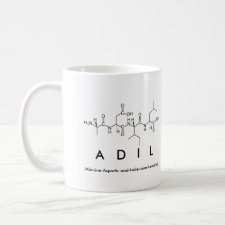
Authors: Demir EF, Özçaliskan E, Karakas H, Uygun M, Uygun DA, Akgöl S, Denizli A
Article Title: Synthesis and characterization of albumin imprinted polymeric hydrogel membranes for proteomic studies.
Publication date: 2018
Journal: Journal of Biomaterials Science-Polymer Edition
Volume: 29
Issue: (18)
Page numbers: 2218-2236.
DOI: 10.1080/09205063.2018.1534423
Abstract: In this presented study, a novel molecularly imprinted polymeric hydrogel membranes (PHMs) were developed to use for the albumin depletion studies. For this, albumin imprinted poly(2-hydroxyethyl methacrylate-N-methacryloyl-(L)-phenylalanine methyl ester) polymeric hydrogel membranes [p(HEMA-MAP) PHMs] were synthesized by the photopolymerization technique, and then characterized by SEM, EDX, FT-IR and swelling studies. Synthesized PHMs had spherical structure and the MAP monomer incorporation onto the PHMs was determined by EDX analysis by using nitrogen stoichiometry. Also, the swelling ratio of the albumin imprinted p(HEMA-MAP) PHMs was determined as 215%. The optimum albumin adsorption condition (adsorption capacity, medium pH, adsorption rate, temperature, ionic strength) were studied and the maximum albumin adsorption capacity was found to be as 34.28 mg/g PHMs. Selectivity experiments were also carried out with the presence of the competitive proteins such as lysozyme and amylase, and the results demonstrated that the albumin imprinted p(HEMA-MAP) PHMs showed high affinity towards the BSA molecules than the competitive proteins of lysozyme and amylase. Adsorbed albumin was desorbed from the PHMs by 1.0 M of NaCl, and the reusability of the imprinted PHMs was also demonstrated for five successive adsorption-desorption cycles without any significant loss in the albumin adsorption capacity. As an application, sodium-dodecyl sulfate polyacrylamide gel electrophoresis was used to indicate the albumin depletion efficiency of albumin imprinted p(HEMA-MAP) PHMs. This presented study showed that, these imprinted membranes are promising for proteomic studies and applications, and can be used for the investigations for human diagnostics
Template and target information: protein, albumin
Author keywords: Albumin depletion, polymeric hydrogel membrane, protein imprinting



Join the Society for Molecular Imprinting

New items RSS feed
Sign-up for e-mail updates:
Choose between receiving an occasional newsletter or more frequent e-mail alerts.
Click here to go to the sign-up page.
Is your name elemental or peptidic? Enter your name and find out by clicking either of the buttons below!
Other products you may like:
 MIPdatabase
MIPdatabase









